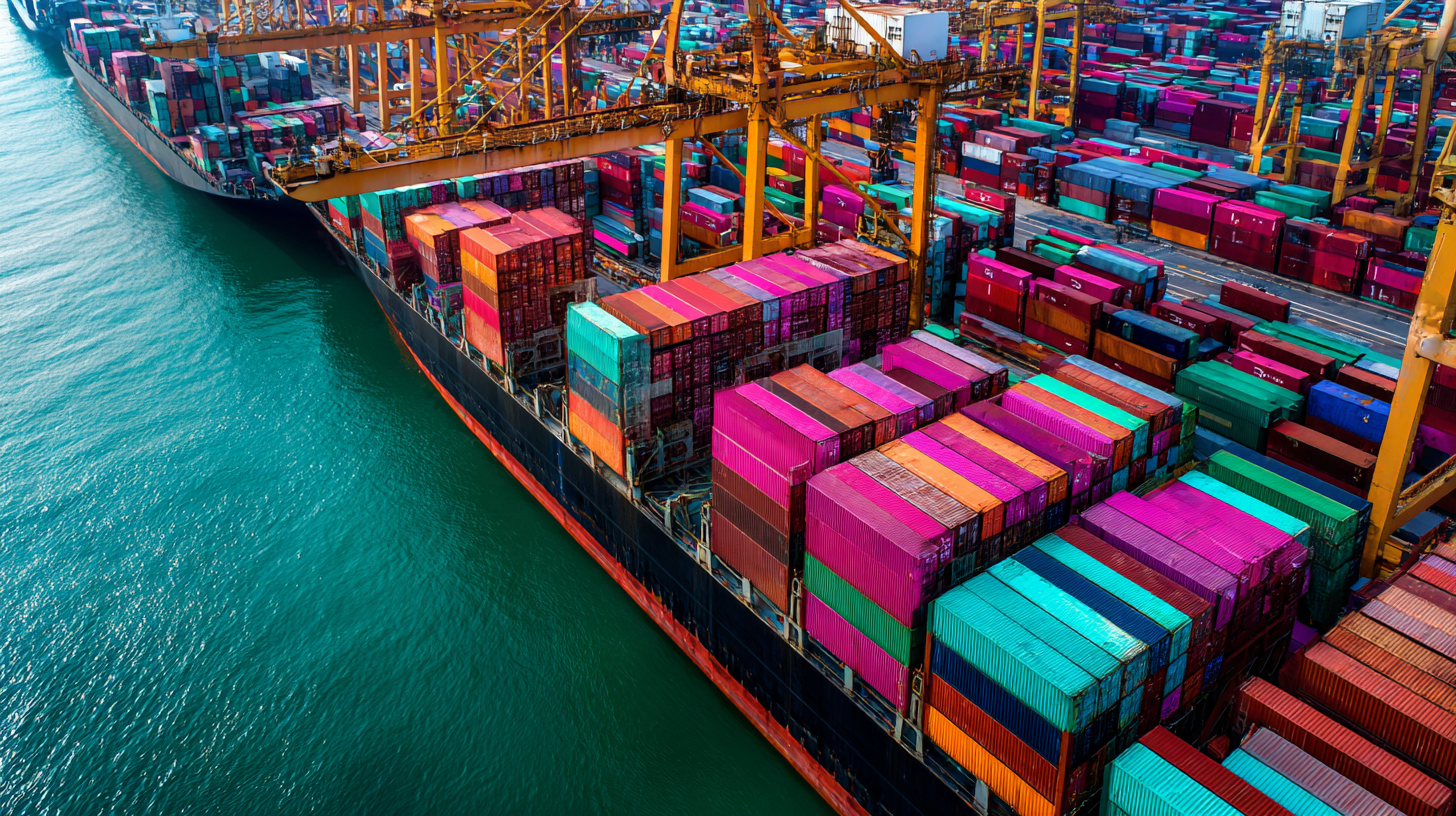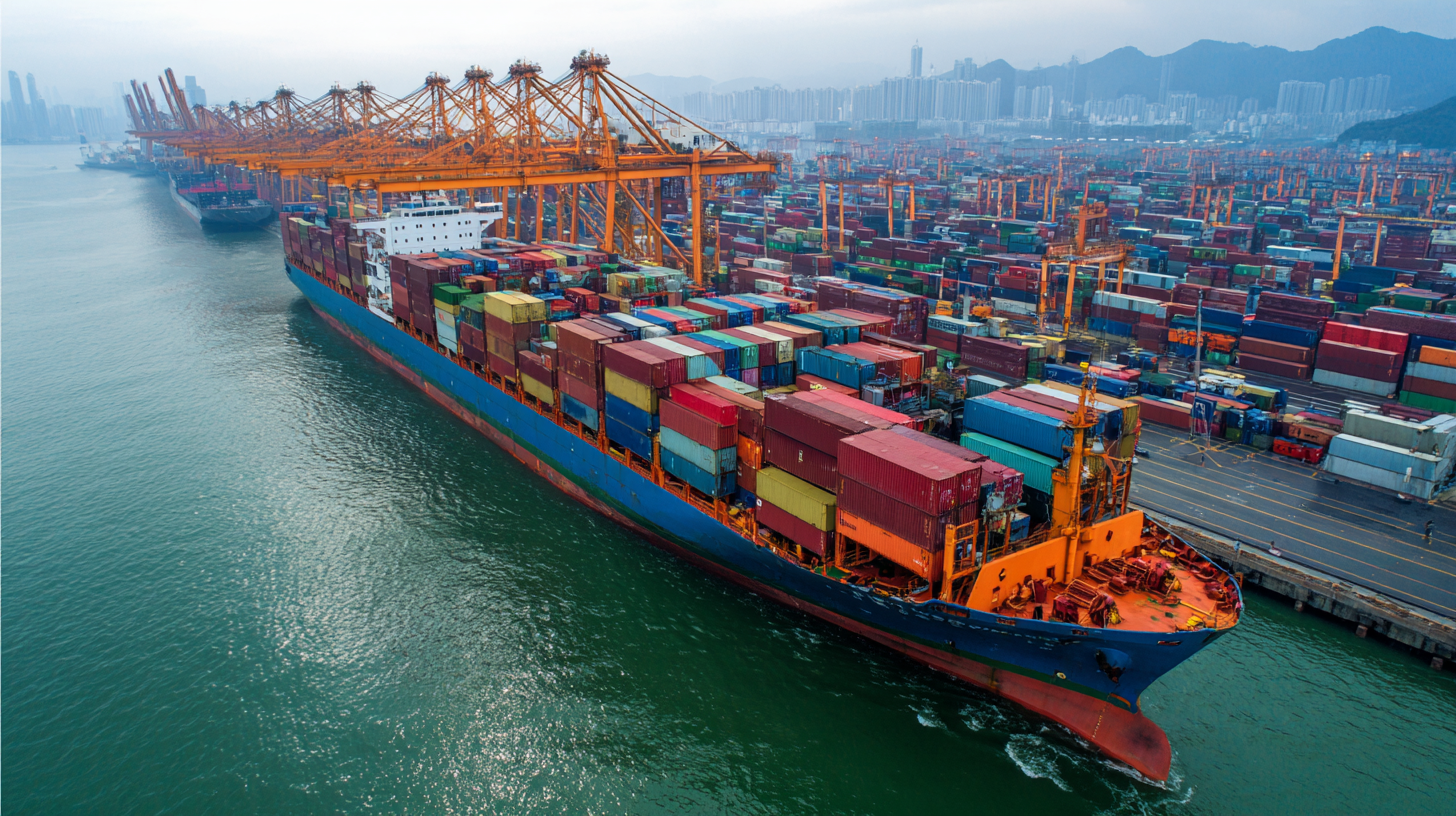Navigating the complexities of supply chain logistics is crucial for any business aiming for success, especially in the global arena. One key aspect that cannot be overlooked is the role of a Chinese freight forward. With China being one of the largest manufacturing hubs in the world, understanding how to effectively utilize Chinese freight forwarding services can significantly impact your operational efficiency and bottom line. This guide will walk you through the essential steps and considerations when engaging with freight forwarders in China, helping you to not only streamline your shipping processes but also to foster better relationships with local providers. Whether you are new to international shipping or looking to optimize your current practices, mastering the art of navigating Chinese freight forward will position your business for sustainable growth and competitiveness in today’s market.

Freight forwarders play a crucial role in the intricate web of the Chinese supply chain ecosystem. They act as intermediaries between manufacturers and transport services, ensuring that goods are moved efficiently from one point to another. By managing the logistics, including documentation, customs clearance, and transportation, freight forwarders enable businesses to focus on their core competencies without getting bogged down by the complexities of international shipping.
In the context of China's rapidly evolving market, choosing the right freight forwarder can significantly impact a company's operational success. These professionals possess in-depth knowledge of local regulations, market dynamics, and best practices, providing invaluable guidance to businesses venturing into international trade. Moreover, they can leverage their established networks to negotiate better rates and optimize shipping routes, ultimately contributing to reduced lead times and costs. Understanding their pivotal role not only enhances supply chain efficiency but also helps businesses navigate the challenges of global logistics.
When navigating the complex landscape of freight forwarding in China, it is essential to understand key shipping regulations and requirements that can impact your business's success. One of the most critical aspects is compliance with customs regulations, which demand accurate documentation and timely submission to prevent delays. For instance, invoices, packing lists, and specific import/export permits must be meticulously prepared. Failure to provide these documents can lead to fines or shipment delays, thereby disrupting the supply chain.
Additionally, businesses must be aware of alignment with international shipping standards and local regulations. Understanding the Chinese Customs Anti-Smuggling Law is vital, as it governs the enforcement against irregularities in trade. Moreover, certain goods may require additional certifications or inspections based on health, safety, and environmental standards. By ensuring that all regulatory requirements are met, companies can facilitate smoother transit through customs and minimize the risk of unexpected challenges in freight forwarding operations.
| Regulation/Requirement | Description | Compliance Deadline | Potential Consequences |
|---|---|---|---|
| Import License | A permit required for importing goods into China. | Prior to shipment | Delays or fines for non-compliance |
| Customs Declaration | Documentation that must be submitted to customs upon arrival. | At the time of import | Goods being held or confiscated |
| Quality Inspection | Mandatory inspection of goods to ensure compliance with standards. | Upon arrival | Costly re-inspections or destruction of goods |
| Tax and Duties | Payments required for goods entering China. | Before goods are cleared through customs | Financial penalties and import bans |
| Regulatory Compliance | Adherence to local laws and regulations for specific goods. | Ongoing | Cease-and-desist orders or legal action |
Evaluating freight forwarding costs is crucial for businesses looking to optimize their supply chain in China. Key metrics to consider include freight rates, additional fees, and service levels. Freight rates often depend on factors such as shipment size, weight, and destination. It's essential to compare these rates across multiple freight forwarders to identify competitive pricing and avoid hidden costs.

Benchmarking data provides valuable insights into industry standards, allowing businesses to assess their logistics expenditures against peers. For instance, understanding the average costs per shipment type can highlight potential inefficiencies in your current forwarding strategy. Additionally, analyzing service performance metrics, such as transit times and reliability, can help businesses choose a forwarding partner that aligns with their operational needs, thus ensuring timely deliveries and enhancing customer satisfaction. By leveraging these metrics and benchmarking data, companies can make informed decisions that lead to improved cost management and business success in the competitive Chinese market.
Navigating the complexities of freight forwarding in China requires businesses to embrace technology and software solutions that streamline logistics and enhance overall efficiency. Recent advancements in e-commerce logistics software offer a variety of tools designed to optimize logistics processes, reduce delivery times, and improve customer satisfaction. For instance, innovative platforms facilitate seamless management of international shipping, enabling users to easily calculate freight costs, verify addresses, and generate shipping documents, thereby enhancing operational flow.

Furthermore, the integration of artificial intelligence and IoT technologies has significantly revolutionized warehouse management, exemplified by a notable case where inventory counting efficiency improved drastically. The logistics industry is also witnessing crucial trends such as AI-driven warehousing and last-mile delivery upgrades, which not only reduce costs but also foster sustainable practices. By leveraging these technological advancements, businesses can effectively manage their supply chains, responding rapidly and efficiently to market demands while ensuring their competitiveness in the global landscape.
Building strong relationships with freight forwarders is essential for any business looking to navigate the complexities of Chinese freight forwarding. A reliable freight forwarder can act as an invaluable partner, guiding you through the intricacies of logistics and ensuring timely delivery of goods. The foundation of these relationships is built on trust, clear communication, and mutual benefit.
Tip 1: Start by having open discussions with your freight forwarder about your specific needs and challenges. Sharing your business goals and logistics expectations will help them tailor their services to suit you better. Consistent communication will foster a deeper understanding and facilitate smoother operations.
Tip 2: Regularly review and evaluate the performance of your freight forwarders. Constructive feedback on their services not only shows your commitment to the partnership but also encourages them to improve and adapt. Recognizing their efforts can also help in building loyalty and promoting long-term cooperation.
By investing time in these relationships, businesses can unlock the full potential of their freight forwarding strategies, ultimately contributing to sustained success in the competitive market.

